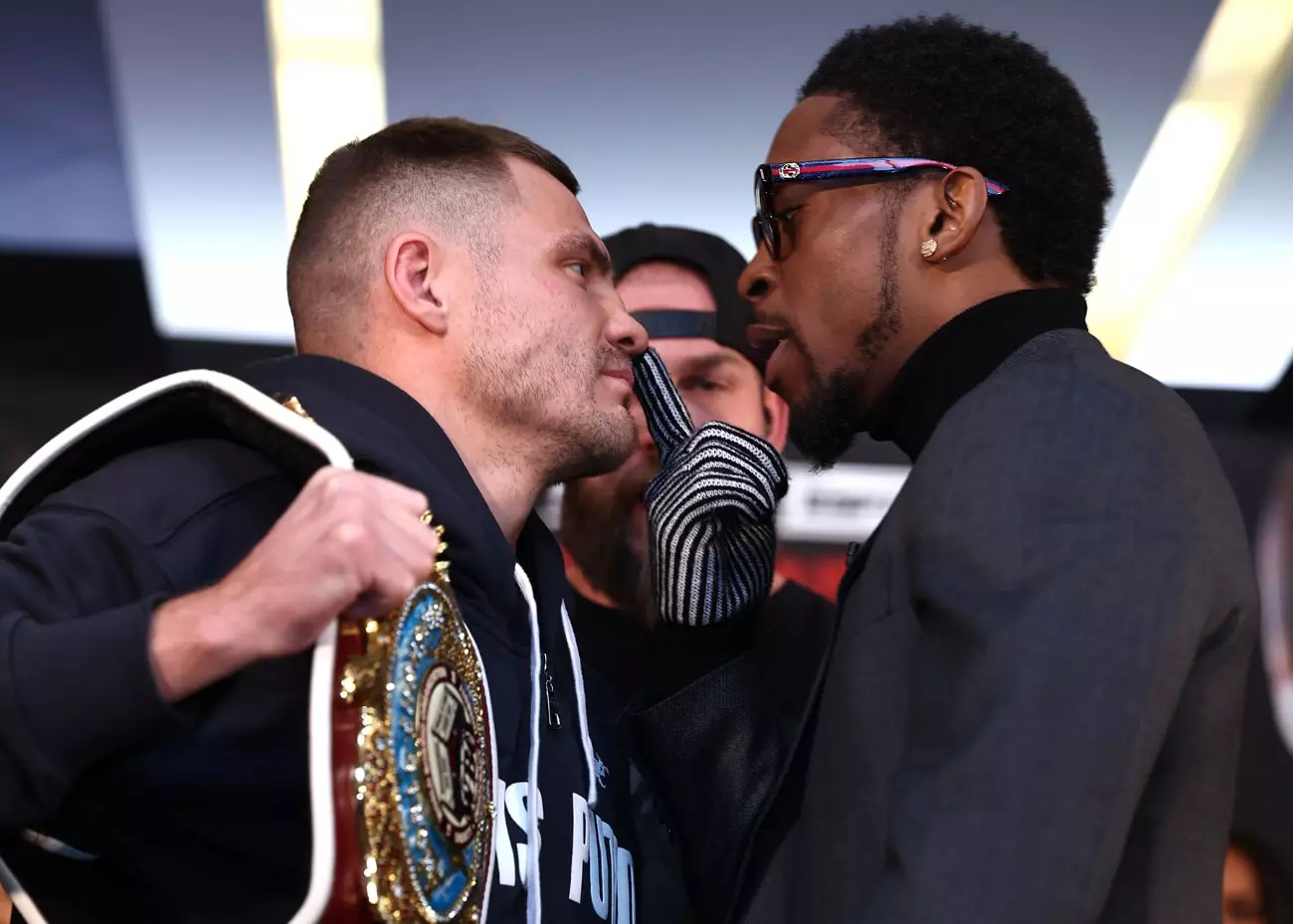By Maestro Amílcar Barnett M., The Bronx, NY-
The final press conference ahead of a world championship fight card often serves as a stage for fighters to promote their upcoming matchups. However, when Keyshawn Davis faced off against WBO lightweight champion Denys Berinchyk and his manager Alex Krassyuk, what should have been a routine media event devolved into a confrontation. Accusations flew as Davis claimed that Berinchyk and Krassyuk had sent him a box filled with bananas and watermelons, insinuating a racial motive behind the gesture. This incendiary allegation quickly overshadowed their impending fight, scheduled for February 14th at Madison Square Garden in New York.
Racial undertones in sports are nothing new, but the accusation levied by Davis raises questions about motives and authenticity. Berinchyk’s defense was immediate; he denied any involvement and implied that Davis was leveraging the situation for hype. This scenario is particularly concerning for boxing, a sport already plagued by narratives that often revolve around divisive themes. By drawing attention to an issue as sensitive as race, Davis risks not only damaging his reputation but also poisoning the atmosphere of the sport and its fans.
Davis’s aggressive demeanor at the press conference, marked by interruptions and confrontational body language, suggested a thirst for drama—the kind that could buoy interest in the fight. However, the essence of promotion should be rooted in sportsmanship, not an attempt to paint an opponent as a villain without substantial evidence. Boxing thrives on its narratives and rivalries, but there’s a fine line that should not be crossed. The boxing community will not quickly forget if Davis becomes known for sensationalist tactics over boxing prowess.
His behavior during the press conference might be seen as a strategy to provoke Berinchyk and get under his skin. Yet, one must wonder about the long-term effects of such theatrics. An insinuation that an opponent is racist not only serves to galvanize fans but could backfire spectacularly if the narrative is proven false. The disdain on Berinchyk’s face suggested he was considering the implications of Davis’s allegations, possibly contemplating whether the young fighter was solely trying to manufacture sympathy.
As Davis prepares to enter the ring, the shadow of this press confrontation looms large. The boxing world is keenly aware of the potential for staged controversies as a means of garnering attention. If this becomes a pattern—if Davis resorts to similar tactics in future bouts—the authenticity of his career might come into question. Nothing would undermine his legitimacy more than a reputation for fabricating drama.
Ultimately, in a sport defined by skill and determination, the focus should remain on fighters’ capabilities within the ring. Establishing a legacy based on integrity rather than sensationalism would not only serve Davis well but also enrich the sport he aims to represent. The path to stardom should be carved through genuine achievements, not through controversy.


Leave a Reply